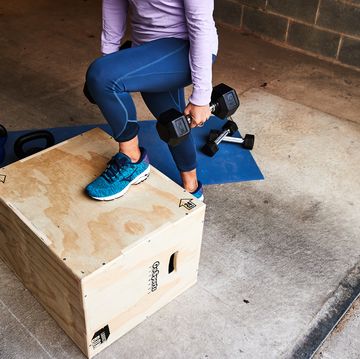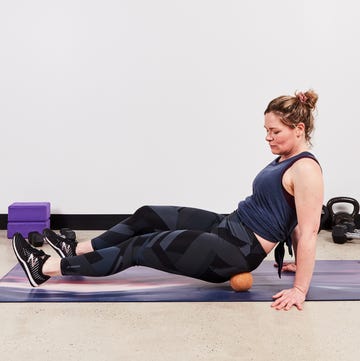[Warning: This is an ultra-long post, but if you're training for multiple long-distance events this season, it's a must-read.]
My first 26.2 is March 4th. I plan on doing a second marathon six weeks later. How do I train in between? -Karen
I am running 12 marathons in 12 months in 2012. What is your recommended training program for in between marathons (three to five weeks between most of them)? -Craig
I'm running three half-marathons two weeks apart from each other. How should I plan to race them? -Catherine
I've received a number of questions in the past few weeks regarding how to train for multiple long-distance races in a season. Rather than answer them one at a time on my Facebook Wall, I want to teach you how to re-focus your training lens on this new type of running challenge. Here goes...
Once upon a time, runners would race long distance events for one purpose: the fastest finish time possible. They would focus on one core race per season and put all their efforts into making it their best performance.
Today, runners are going for frequency of events and finishing multiple races in one season or throughout the year.
Both are excellent challenges, but you can't use the traditional training formula for a new-age race goal. (You can, but you're likely to end up hurt, frustrated, and completely unsatisfied).
The key to successfully racing multiple long-distance events in a short period of time is to change your paradigm and look at it from a different angle. For example...
Karen's goal is to run two marathons in six weeks, not one marathon and then another six weeks later.
Craig's goal is to race twelve marathons in 2012 one month apart, not one marathon every month.
And Catherine's goal is to race three half-marathons in seven weeks, not one half-marathon every two weeks.
If you want to take on a new-age challenge, you have to train with a contemporary plan--otherwise, you end up comparing apples to oranges, and we all know that doesn't make much sense.
When you begin to think of it as a whole, rather than the pieces, you can truly optimize your training, recovery, and race strategies.
Two years ago, I raced the three-day staged TransRockies UltraRun in Colorado. The first day was a moderately mountainous 21-mile race in 90+ degree heat. The second day was a 14-mile mountain ascent and descent at over 11,000 feet. And the final stage was a 24-mile rolling course in perfect running weather. I didn't train/race three trail races, but rather one Ultra Event with three stages. There is a big difference.
So as you're training for your multiple marathons, here are a few things to keep in mind.
- Plan the entire race season as your goal rather than one event multiple times. In order to finish the last event, you have to race wisely in the first few. You can't afford to burn through all your race points in the first event like the traditional racing model, because it will delay your recovery and set you up for an injury or DNF [did not finish] in the future events.
- Invest in an optimal runway of training time before you attempt this. Give yourself time to run like a super hero. Without a proper base, your risk of injury and burnout skyrockets. It may take you longer to achieve your goal, but all good things in life take time. Set yourself up to succeed.
- Cross-training is your friend. I repeat: Cross-training is your friend. Cycling, elliptical, swimming, and other low-impact cardiovascular activities will help you train at higher volumes with less risk of injury, actively recover from races, and keep your mind from a complete meltdown due to boredom. Find an activity you enjoy and weave it into your training. It will be your bestie in no time.
- When you race your first event--that IS training for the next event. The shorter the time between the two events (i.e. one to two weeks) the less activity and the more recovery you should be doing. For example, if you are racing a half- or full marathon two weeks apart, the first week is all about recovery, with time off, a massage, and flexibility work. The following week is all about short, easy-effort runs. This is different than the traditional model of rest and easy runs or cross-training the first week, because in that paradigm you won't be racing in two weeks, you'll still be recovering! The goal after your first race is to recover enough to race again, so you have to speed the rate of recovery rather than train. See the difference? Good.
- As the time between the races increases (i.e. three to four weeks), expand on the rest and weave in easy-paced running, which serves as a recovery and maintenance phase. It's less about training and more about assessing the damages and maintaining what you've got. So an easy rest week the first week, a week of short, easy-effort runs, a week of normal mid-week distance runs (still easy effort), and a taper week before the second event.
- For events that are a few months apart (8 weeks), continue to build on this paradigm--rest week, easy short week, easy effort week, easy effort+up tempo run+mid-length long run (12 for marathon, 8 for half), and then taper down to race as you normally would. This is, of course, if all things go swimmingly with your first event and your body responds efficiently. Which brings me to my next point...
- Let your body be your guide. Your mind is going to try to make you run more, rest less so it doesn't have to worry. There's always a little resistance when you're achieving a new goal. Listen to your body and remember that recovery and health win over miles and aches and pains. Just like my three-day stage race, every event you run is preparation for the next. Don't get caught up in traditional training methods--you aren't racing traditionally, so you have to prepare differently.
- Don't forget that recovery is the name of the game and primo important while in the race season. The quality of your next race depends on the quality of your recovery. Think outside of running to recover efficiently. Think of it as a core racing strategy. Eat well, sleep well, reduce life stress, get a massage or two, and be diligent about total body flexibility.
And finally, a few sample training "ideas" for Karen, Craig, and Catherine as they set out on their Multiple Marathon Challenges.
[Karen's Goal: Two Marathons in six weeks]
[First Marathon]
Race Strategy: Think of the two-marathon goal as one race, in which you run the first one slower than the second (a negative split). This will aid in faster recovery and allow you to run stronger in the second.
Week 1: (post-marathon) Massage, rest for one to two days, very easy, low-impact cross-training (elliptical, cycling, swimming) through the week (20-30 minutes) and regular flexibility work (foam rolling, stretching).
Week 2: Easy-effort 30 to 40 minute runs by feel and effort level rather than pace. Alternate with cross-training. A longer run of six to seven miles if all feels well and there aren't any lingering aches and pains. If that is the case, continue to cross-train easily.
Week 3: Easy-effort runs closer to your normal training distances or times during mid-week, plus cross-training workouts. A longer run of seven to eight miles.
Week 4: Easy-effort runs at your normal training distances or times during mid-week, plus cross-training workouts and a longer run of 10 to 12 miles.
Week 5 & 6: Follow your marathon taper for weeks five and six and decrease your mileage as you head into the second marathon.
[Second Marathon]
[Craig's Goal: 12 Marathons in 2012 - One every month]
Race Strategy: Think of the twelve marathons as you would a long run, and start out at a very easy effort in the first quarter of the season. The easier, the better, as your body will adapt to the racing schedule. You can possibly improve if you train by your body rather than your head. Save the best for last.
[Marathon]
Week 1 (post-marathon): Massage, rest for one to two days, very easy, low-impact cross-training (elliptical, cycling, swimming) through the week (20 to 30 minutes) and regular flexibility work (foam rolling, stretching).
Week 2 : Massage, alternate low-impact cross-training with very easy effort 30-minute runs every other day and primary focus on flexibility. End the week (if all feels well) with a longer run of six to seven miles. If that is the case, continue to cross-train easily.
Week 3: Easy-effort runs at closer to your normal training distances or times during mid-week. Cross-training workouts with moderate to hard effort intervals. A longer easy run of seven to eight miles.
Week 4: Taper down to the next marathon with easy paced 30 minute runs and a cross-training workout (30 minutes total with four to five one-minute moderately hard pick-ups throughout- cycling, elliptical) earlier in the week. Include one to two complete rest days as well.
[Marathon]
[Catherine's Goal: Three Half-Marathons in seven weeks]
Race Strategy: Think of the three races as one and break it into three equal parts. Run the first easy for the entire race, the second easy for the first half of the event and slightly faster for the second half, and the final race, depending on how you feel, race the first third easy, the second third moderately hard, and the final miles hard.
[First Half-Marathon]
Week 1: Massage, rest for one to two days, very easy, low-impact cross-training (elliptical, cycling, swimming) through the week (20 to 40 minutes) and regular flexibility work (foam rolling, stretching).
Week 2: (Race Week) Massage, alternate low-impact 30 to 40 minute cross-training with a few easy-effort 25 to 30 minute runs and a primary focus on flexibility. This week should mimic that of your normal race week with just enough running to keep your legs loose.
[Second Half Marathon]
Week 1: Massage, rest for one to two days, very easy, low-impact cross-training (elliptical, cycling, swimming) through the week (30 to 40 minutes) and regular flexibility work (foam rolling, stretching).
Week 2: (Race Week) Massage, alternate low-impact 30 to 45 minute cross-training with a few easy-effort 30 to 40 minute runs and a primary focus on flexibility.
Week 3: Taper down to the final half-marathon with easy-paced 20 to 30 minute runs. Include one or two complete rest days as well.
[Third Half Marathon]
Happy Trails...
Coach Jenny- Co-Author, Marathoning for Mortals and Running for Mortals
Have a question for Coach Jenny? Post it on the Ask Coach Jenny Facebook Page or email her at coach@jennyhadfield.com
Follow along with her on Twitter and Facebook or "like" the Ask Coach Jenny page below to ask a question, learn from others, and get inspired!













